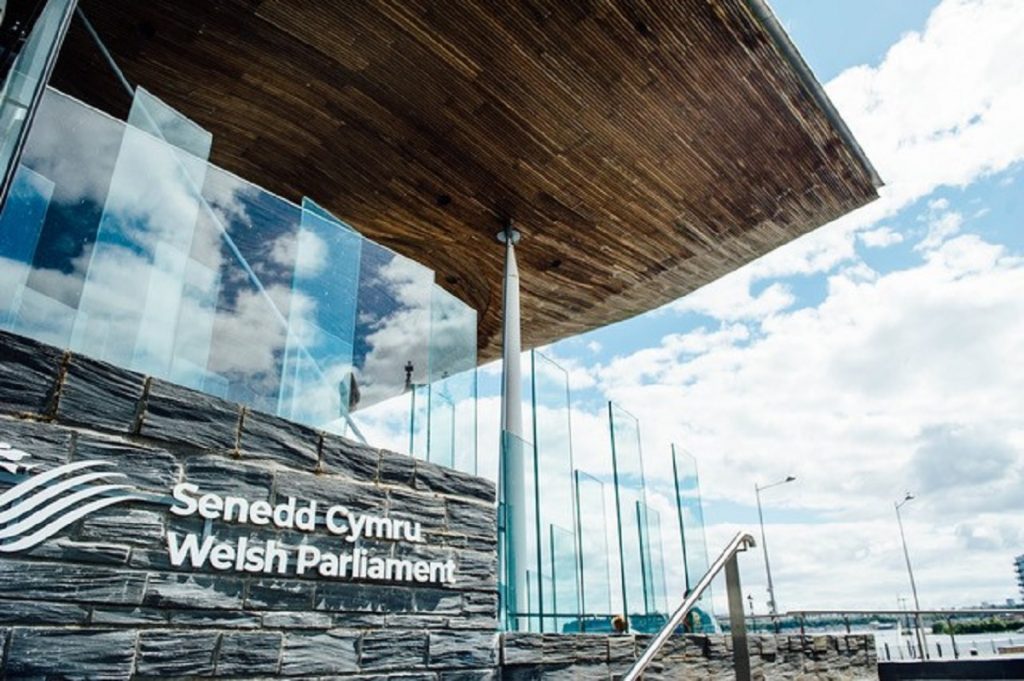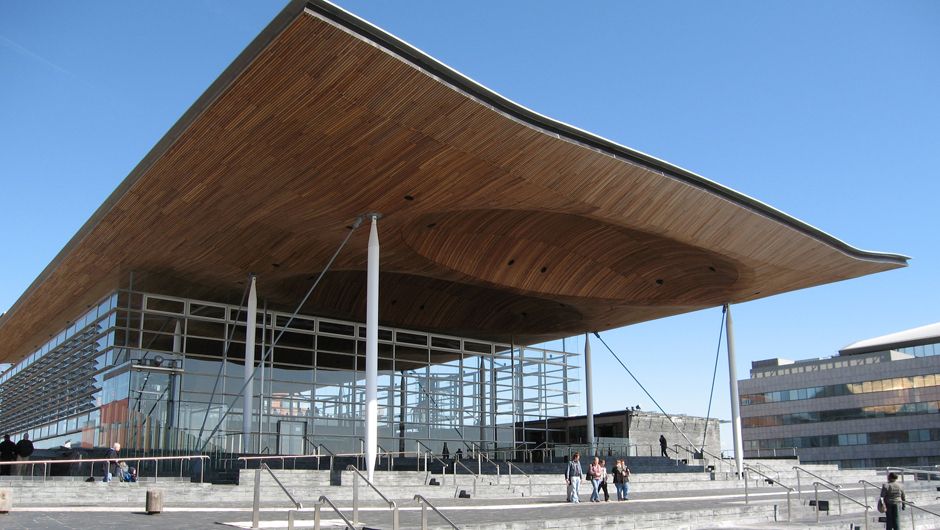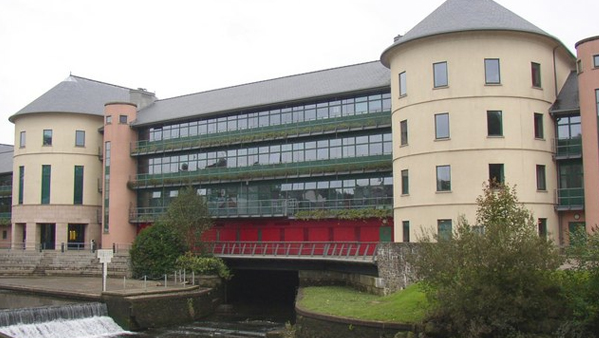Politics
No boost from Budget for Wales

FINANCE SECRETARY Mark Drakeford has responded to the UK government’s Autumn Budget saying it provides no significant boost for hard-pressed public services.
The Autumn Budget includes approximately £1b of additional capital funding for Wales between 2017-18 and 2020-21 – but more than half of this must be repaid to the UK Treasury.
The UK Budget also includes additional revenue funding of £215m for the period 2017-18 to 2019-20.
Finance Secretary Mark Drakeford said: “While these small increases in the resources available to Wales are to be welcomed as they will help support our priorities, this additional funding will do little to ease the pressures on frontline public services, which have been struggling to cope as a result of the successive cuts to our budget we have experienced since 2010-11.
“Even with this additional funding, the Welsh Government’s budget will be 5% lower in real terms in 2019-20 than it was in 2010-11.
“As a result of the measures the Chancellor announced today the funding Wales receives from the block grant will increase. But more than half of this increase is in the form of funding which must be paid back to the UK Treasury. £650m of the additional capital funding is in the form of financial transactions – this is a form of capital funding which must be repaid to the Treasury and there are tight restrictions on what it can be spent on.”
The Finance Secretary said the budget was also a missed opportunity to provide additional investment in infrastructure to support the economy during this period of uncertainty.
Professor Drakeford said: “The Office for Budget Responsibility has confirmed the UK economy has slowed markedly and its growth forecasts have again been revised downwards. In my recent letter to the Chief Secretary to the Treasury, I urged the UK government to listen to the International Monetary Fund and the Organisation for Economic Co-operation and Development to take advantage of low interest rates and invest in economic infrastructure.
“This is why we called on the UK government to commit to important infrastructure projects in Wales, including the Swansea Bay tidal lagoon. Once again the UK government has failed Wales by failing to invest in key projects.”
He added that the UK Budget gave little detail regarding additional funding about UK government plans to cut the public sector pay cap and give public sector workers a much-needed pay rise.
“The Welsh Government, standing with our hard working public sector workers and trade unions, has repeatedly called on the UK government to lift the public sector pay cap and provide additional funding to give workers across the UK the pay rise they deserve. I was clear this must be fully funded.
“Today’s Budget was a missed opportunity to do this for all public sector workers. For NHS staff who are waiting the outcome of the independent pay review body, I expect the Chancellor to honour his commitment to fund any pay recommendations in full and to provide a full Barnett consequential.”
The Cabinet Secretary also said there must now be discussions between the Welsh and UK governments about the UK government’s intention to explore a tax on plastics – the Welsh Government is currently investigating a disposable plastic tax as one of four new tax ideas.
“I am pleased the UK government is taking our lead in considering how to use taxation to change behaviour in areas such as disposable plastic.
“I announced a tax on disposable plastic as part of the shortlist of proposed taxes in October, I expect to discuss this in detail with the UK government as part of its evidence gathering.”
BUDGET A MISSED OPPORTUNITY
Welsh Lib Dem Leader Jane Dodds commented: “This budget presents a missed opportunity for Wales. The Welsh Liberal Democrats have presented an ambitious vision for Wales, it is disappointing that the Chancellor lacks this ambition.
“Instead of investing in making Wales a world leader in Tidal Energy by giving the green light to the Swansea Tidal Lagoon or giving South Wales the transport investment it needs the Chancellor decided to throw £3b into a Brexit black hole. It’s clear only the Welsh Liberal Democrats have the ambition and ideas needed to ensure opportunity for Wales.
“As one of the most deprived regions of the UK and even the EU, Wales has suffered more than most from austerity. With the Chancellor failing to take meaningful action on Universal Credit and the public sector pay cap and growth set to be much slower than expected, this suffering will only continue.
“The Chancellor needed to immediately end the roll out of Universal Credit to prevent rising child poverty and homelessness and end the public sector pay cap to end the scandal of public sector workers relying on food banks to survive. It is bitterly disappointing the Chancellor has failed on both counts.
“This budget is yet another example of the crippling damage Brexit is already doing to the Welsh Economy. Instead of investing in public services or vital infrastructure projects, the Chancellor is spending £3b preparing for a disastrous no deal Brexit his party foolishly refuse to rule out. The Welsh people deserve to have the final say on the Brexit deal and a chance to choose an exit from Brexit.”
WALES ‘LEFT OUT IN THE COLD’
Plaid Cymru’s Treasury spokesperson and Carmarthenshire Member of Parliament, Jonathan Edwards, said that the British Government once again delivered a budget for the south-east of England whilst Wales is ‘left out in the cold’.
Mr Edwards said the only we can build a better Wales is to demand the tools to do it ourselves.
Speaking after the Budget statement Jonathan Edwards MP said: “In prolonging austerity well into the next decade and sticking to the most economically damaging form of Brexit, the squeeze on living standards will only get worse.
“There was nothing in the budget to drive up wages, and nothing to push down the cost of living.
“For the second budget in a row, economic growth, business investment and productivity have all been downgraded. The result of the Chancellor’s stubborn insistence on sticking to his failed plan is ultimately felt in people’s pockets through lower wages.
“Once again the British Government has delivered a City-centric budget, deliberately overheating the south east of England while Wales is left out in the cold. Our roads and railways are neglected whilst Welsh taxpayers’ money is pumped into London.
“The only way we can build a better Wales, drive up wages and spread prosperity is to demand the tools so we can get on with the job of doing it ourselves.”
News
First step towards council tax and business rate reform

MAJOR reforms to council tax and business rates have cleared the first hurdle in the Senedd.
MSs backed the general principles of the local government finance bill, which would introduce a five-year cycle for council tax revaluations from 2030.
The bill would lay much of the groundwork for Welsh Government proposals to redesign council tax, with current bands based on property values from 2003.
It would also increase the frequency of business rates revaluations from five to three years.
Rebecca Evans told the Senedd the bill forms a vital part of the Welsh Government’s wider programme of local tax reform.
Wales’ finance minister explained the bill would enable ministers to modify business rate relief exemptions and the multiplier to support policy priorities.
John Griffiths outlined the local government committee’s stage-one report recommendations aimed at improving the bill and guarding against unintended consequences for taxpayers.
Mr Griffiths explained that the bill provides a framework for future policy changes to be made by the Welsh Government via secondary legislation.
The Labour MS, who represents Newport East, said the committee heard concerns that this limits opportunity for public engagement and scrutiny by the Senedd.
Welcoming the Welsh Government’s commitment to retaining the single-person council tax discount at 25%, he highlighted wide-ranging powers in the bill over vital reduction schemes.
In terms of business rates, the committee chair said MSs heard broad support for a move to three-yearly revaluations, which he described as a reasonable, proportionate cycle.
Peredur Owen Griffiths, who chairs the finance committee, backed the bill’s key aim to create a fairer, more flexible system.
The South Wales East MS welcomed reassurances from the Welsh Government that the intention of council tax reforms is not to raise more revenue.
“Given the regressive nature of council tax, we support the aim to make it fairer without affecting the tax base,” he said.
Plaid Cymru’s finance secretary said the proposed powers will reduce the Welsh Government’s reliance on UK bills to make changes.
Alun Davies, a Labour backbencher, warned that delegated powers in the bill risk diminishing the role of the Senedd.
Sam Rowlands, the Tories’ shadow local government secretary, raised concerns about the bill putting more power in the hands of the Welsh Government rather than councils.
He warned the bill is a stepping stone towards higher taxes through the back door, saying: “This bill in and of itself does not necessarily do that but it certainly enables future changes.”
The former leader of Conwy council, who represents North Wales in the Senedd, called for reforms to the formula used to allocate funding to Wales’ 22 councils.
Raising concerns about digital exclusion, Mr Rowlands opposed a provision in the bill which would remove a duty to publish council tax notices in local newspapers.
He said: “We believe it’s a really important part of the democratic process in local government, especially in relation to transparency.”
Backing a revaluation of all 1.5 million properties in Wales, Labour MS Mike Hedges described council tax as fundamentally unfair.
He said: “Someone living in a property worth £100,000 pays around five times as much council tax relative to the property value as someone living in a property worth £1m.”
Mr Hedges, who represents Swansea East, also opposed the removal of the duty to provide council tax information in newspapers.
On business rates, he said: “I’ve always supported the returning of them to local authorities. We don’t need an all-Wales system; let each local authority set its own business rates.”
Ms Evans told the chamber she intends to make a statement on the next steps for council tax reform before the summer recess.
The Senedd agreed the general principles of the reforms without objection, and the bill now moves to stage two which will see MSs consider detailed amendments.
News
Senedd backing for major infrastructure approval changes

THE SENEDD agreed reforms aimed at streamlining the consenting process for significant infrastructure projects in Wales.
MSs passed the infrastructure bill, which will establish a unified process, known as infrastructure consent, for major on and offshore projects.
Infrastructure consent will replace existing procedures for energy, transport, waste, water and gas projects above a certain size or capacity threshold.
Julie James, Wales’ housing, local government and planning secretary, argued the bill will introduce a modern and simplified process.
She said the bill will play an important part in moving towards net-zero emissions by 2050 by enabling consent for renewable energy projects in a timely but robust manner.
She told MSs: “Not only will it improve the competitiveness of Wales as an attractive place for investment and jobs, it will also empower local communities and other key stakeholders.”
Ms James said it is a “process bill” with much of the detail to follow in secondary legislation and a significant amount of work ahead to ensure a smooth implementation process.
She told the chamber that secondary legislation will ensure the infrastructure consenting process operates effectively, efficiently and with maximum engagement.
She explained that two consultation papers will be issued by late May, with the first focused on pre-application consultation processes and the second centred on fees.
A third and final consultation paper will follow this year outlining the whole new process.
Janet Finch-Saunders, the Conservatives’ shadow secretary, described the reforms as hollow and lacking in fundamental details.
She argued this is in complete conflict with the bill’s core aims of delivering a streamlined process and empowering communities to engage.
Ms Finch-Saunders warned that the bill is missing a vast amount of details, including on how open-floor hearings will be triggered and time limits for making decisions.
She said: “It is apparent to any reasonable person that this bill does not represent anywhere near what it promises to do, and that is a streamlined and unified process.
“The reality is that so much information is omitted that we do not know how these processes are going to work in reality.”
The Aberconwy MS added: “Clearly, the legislation is not as I believe it should be. We do not believe that it delivers a robust process for Wales.”
Delyth Jewell stressed the importance of striking the right balance between tackling the climate emergency and safeguarding the natural world.
Plaid Cymru’s deputy leader said planning processes must be more accessible to the public.
“Too often communities are left feeling disenfranchised and marginalised when decisions about infrastructure are made without their say,” she warned.
Calling for a coal-free future for Wales, Ms Jewell reiterated her party’s calls for coal to be removed from the list of significant infrastructure projects in the bill.
The South Wales East MS said: “We will keep pushing for a number of changes in regulations. But passing the buck and allowing this bill to fail would be a retrograde step.
“Let this be the first step in a journey towards democratising our planning process. There’s an awful lot more that we need to do, but it can at least start here.”
Ms James reiterated that many details were deliberately not included “on the face of the bill”.
She said: “If you were to put that into primary legislation, it would become out of date so fast that it wouldn’t make the end of the year.
“So, it is very important that we put those things in secondary legislation.”
Before the debate could be held, the King’s consent had to be sought because the bill could impact the Royal Family’s interests, such as the Crown Estate.
MSs agreed the stage-four vote on the final text of the bill, with 36 in favour and 15 against.
The infrastructure bill now enters “post stage four”, a four-week period during which it could be challenged by the UK Government but it is expected to move on to Royal Assent.
Politics
Last-minute council tax lowering to come under spotlight

A CLAIM at last-minute use of reserves was used to lower Pembrokeshire’s council tax increase to avoid senior councillors being defeated during the setting of the council’s annual budget is to come under the spotlight later week.
Pembrokeshire County Council was facing a 16.3 per cent council tax increase when setting the council budget for 2024-’25 in March; that figure dropping to 12.5 per cent after an 11th-hour alternative budget proposal by deputy leader Cllr Paul Miller was narrowly backed.
That drop in the council tax rise was made by using additional reserves of £1.5m, as well as £1m target for council efficiency savings.
Members of the council’s Governance & Audit Committee are, at its April 18 meeting, to consider concerns raised by Councillor Huw Murphy about the budget process following that meeting, along with assurances provided responding to his concerns.
A report for members states: “On March 25 Councillor Murphy raised concerns to the Chair of the Governance & Audit Committee regarding the council’s budget setting process for the 2024-25 budget, and associated issues, which council considered and set at their meeting on March 7.
“The Chair of the Governance & Audit Committee asked the Chief Executive to review those concerns and report to the Committee to provide assurance that there were no procedural failures in the budget setting process.”
Cllr Murphy has written: “An email was sent out on behalf of the Director of Resources on Feb 1 making it clear that no alternative/amendment budget could be presented after Feb 14. However, on March 7 at full council this is exactly what occurred.”
He has raised concerns about why an alternative budget proposal was allowed after February 14, and has asked whether there was sufficient time for the accepted alternative budget to be analysed.
He says his political group advanced a potential budget alternative to use £750,000 in reserve, which was refused, with a maximum of £375,000 offered, along with a later proposal refused, claiming Cllr Miller’s £1.5m proposal may have been submitted just 18 hours before the budget D-day.
In his lengthy document raising his concerns he states: “I am also aware that some ruling group councillors arrived at County Hall very early on March 7 to possibly refine the amendment that was then put before council.
“I form my opinion on becoming aware of a councillor having been contacted repeatedly in an effort to ‘persuade’ him in the weeks before full council to support a council tax of 16.31 per cent who was contacted on two to three occasions on the morning of March 6 and bravely refused to relent and made it clear he could not support a CT of higher than around 12 per cent.
“This councillor is in the ruling group and, in my opinion, his refusal and the refusal of others on the ruling group to buckle to a CT rise of 16.31 per cent caused panic in a Cabinet now facing imminent defeat at full council the next day and as a result they drafted a last-minute alternative/amended budget to appease ruling group councillors who had rebelled.”
The report for members concludes: “There is no evidence of procedural failings in the budget setting process and the legal budget setting procedures have been adhered to. There was sufficient time for officers to properly assess the alternative budget proposed and for the S151 Officer to make a properly informed statement at Council on March 7.”
It is recommended members consider the concerns raised by Cllr Murphy and notes the assurance provided in response to those concerns, and the committee notes that there were no procedural failures in the council’s budget setting process.
-

 Business2 days ago
Business2 days agoBluestone National Park Resort payments expected to end
-

 Community4 days ago
Community4 days agoThe Harbourmaster: Special rail excursion draws crowds to Milford Haven
-

 News3 days ago
News3 days agoDragon LNG ‘monitoring’ scrap car blaze in Waterston
-

 News3 days ago
News3 days agoSearch for Luke, 19, reported missing in the Pembroke Dock area, continuing
-

 News14 hours ago
News14 hours agoSearch for missing teenager Luke continues at Pembroke Dock
-

 News5 days ago
News5 days agoMajor search in the area of The Cleddau Bridge and Hobbs Point
-

 Crime2 days ago
Crime2 days agoEstate agents admit health and safety failings following fatal market incident
-

 News20 hours ago
News20 hours agoMan jailed after scarring police officer in Narberth altercation





































